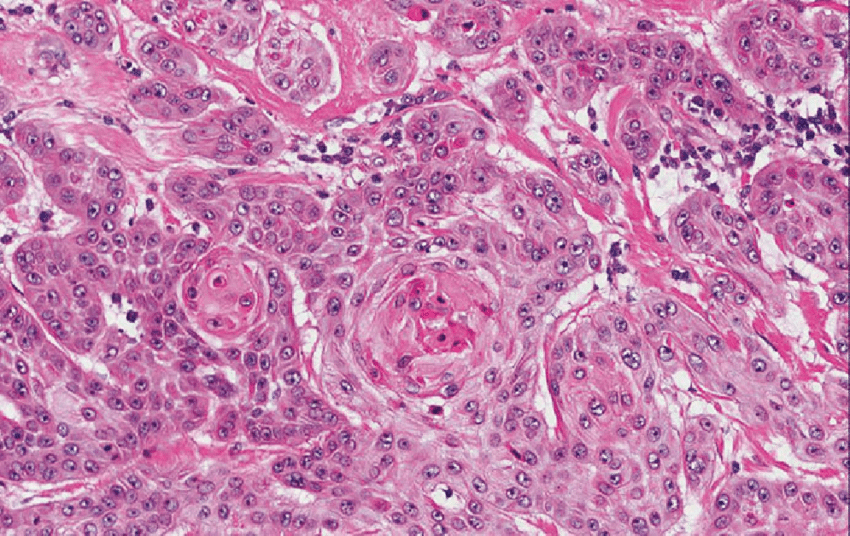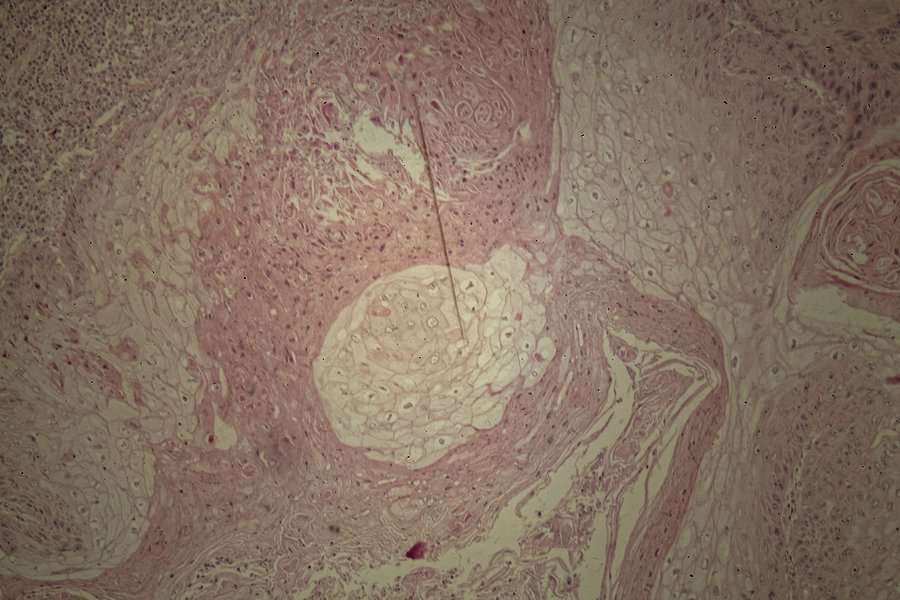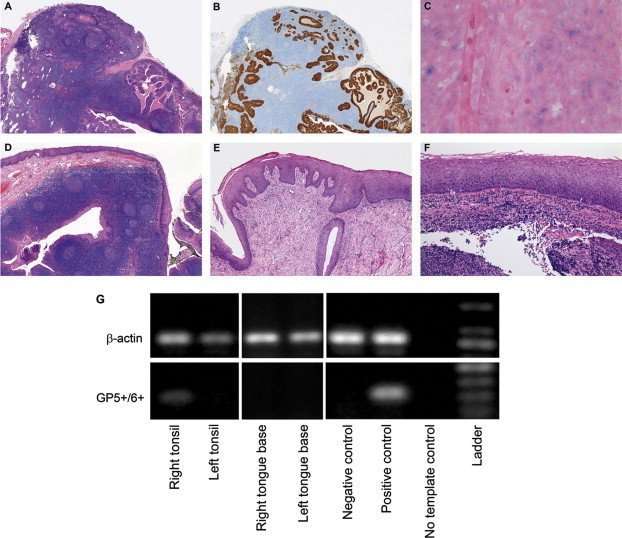Treat Yourself To A Massage
A gentle massage can help with both the pain and stress from cancer. If you have lymphedema enlarged lymph nodes after surgery a special massage technique called lymph node drainage can help bring down swelling in the affected arm or leg.
Go to a licensed massage therapist who has training and experience caring for people with skin cancer. Ask your oncologist for a referral. Let the massage therapist know where on your body your cancer was, so they can avoid it during the massage.
Nausea and vomiting are common side effects of both radiation and chemotherapy. If you usually eat three large meals a day, switch to having several small ones. Smaller portions are easier for a sensitive stomach to handle.
Choose bland foods like crackers and dry toast. Drink extra water and other fluids to prevent dehydration.
Are There Different Kinds Of Skin Cancer
There are many types of skin cancer. Your doctor can tell you more about the type of skin cancer you have.
Basal cell and squamous cell skin cancers are much more common than melanoma and dont often spread to other parts of the body. Melanoma is more deadly because it is more likely to spread to other parts of the body.
What Will Happen After Treatment
Youll be glad when treatment is over. Your doctor will want you to check your skin at least once a month. It will be very important to protect yourself from getting too much sun.
For years after treatment ends, you will see your skin cancer doctor. At first, your visits may be every few months. Then, the longer youre cancer-free, the less often the visits are needed. Be sure to go to all of these follow-up visits. Your doctor will ask about symptoms and check you for signs of the cancer coming back or a new skin cancer. Other exams and tests may also be done.
Having cancer and dealing with treatment can be hard, but it can also be a time to look at your life in new ways. You might be thinking about how to improve your health. Call us at 1-800-227-2345 or talk to your cancer care team to find out what you can do to feel better.
You cant change the fact that you have cancer. What you can change is how you live the rest of your life making healthy choices and feeling as good as you can.
Also Check: How To Treat Squamous Cell Carcinoma
What Is Squamous Cell Carcinoma
Squamous cell carcinoma is the second most common form of skin cancer. Its usually found on areas of the body damaged by UV rays from the sun or tanning beds. Sun-exposed skin includes the head, neck, chest, upper back, ears, lips, arms, legs, and hands.
SCC is a fairly slow-growing skin cancer. Unlike other types of skin cancer, it can spread to the tissues, bones, and nearby lymph nodes, where it may become hard to treat. When caught early, its easy to treat.
SCC can show up as:
- A dome-shaped bump that looks like a wart
- A red, scaly patch of skin thats rough and crusty and bleeds easily
- An open sore that doesnt heal completely
- A growth with raised edges and a lower area in the middle that might bleed or itch
How Serious Is My Cancer

If you have skin cancer, the doctor will want to find out how far it has spread. This is called staging.
Basal and squamous cell skin cancers don’t spread as often as some other types of cancer, so the exact stage might not be too important. Still, your doctor might want to find out the stage of your cancer to help decide what type of treatment is best for you.
The stage describes the growth or spread of the cancer through the skin. It also tells if the cancer has spread to other parts of your body that are close by or farther away.
Your cancer can be stage 0, 1, 2, 3, or 4. The lower the number, the less the cancer has spread. A higher number, like stage 4, means a more serious cancer that has spread beyond the skin. Be sure to ask the doctor about the cancer stage and what it means for you.
Other things can also help you and your doctor decide how to treat your cancer, such as:
- Where the cancer is on your body
- How fast the cancer has been growing
- If the cancer is causing symptoms, such as being painful or itchy
- If the cancer is in a place that was already treated with radiation
- If you have a weakened immune system
Recommended Reading: How Quickly Can Melanoma Appear
How Is Cancer Fatigue Managed Or Treated
The first step in treating fatigue is knowing the problem exists. Many people don’t bother to mention fatigue to their doctors because they believe it is normal. It’s vital that you discuss this and all symptoms or side effects with your healthcare provider. Then, efforts can be directed at determining the cause of the problem and prescribing appropriate treatment. Your particular cancer treatment regimen, with its known side effects, may provide clues for your doctor or health care professional. A simple blood test, for example, can determine if you are anemic.
There is no single medication available to treat fatigue. However, there are medications available that can treat some of the underlying causes.
When youre struggling, you may want to see a palliative care specialist. These experts help people with cancer manage symptoms like pain, nausea and depression.
Your provider or palliative care team may recommend these actions to ease fatigue:
How Long Does Cancer Fatigue Last
Everyones experience with cancer fatigue is unique. For some people, fatigue lasts a few weeks. Others may feel exhausted for years. You may feel better when your cancer treatments stop, but often fatigue lingers.
- Bone marrow transplants can cause prolonged fatigue that lasts up to a year.
- Radiation therapy fatigue often gets worse as treatments progress. Fatigue should lessen a few months after you stop treatment.
- Surgery tends to cause temporary fatigue that goes away after you recover.
- Systemic treatments can cause fatigue that comes and goes. These treatments include chemotherapy, immunotherapy and targeted therapy. You may be exhausted while taking the medications and feel better during the recovery phase . When treatment resumes, you feel exhausted again. You should have more energy when you finish the treatment.
Read Also: What Does Superficially Invasive Squamous Cell Carcinoma Mean
What Are The Risks Of Mohs Surgery
Mohs surgery is performed with local anesthesia. This removes the common surgical risks that come with using general anesthesia.
Risks that are associated with Mohs surgery include temporary bleeding, pain, and tenderness around the area being removed. More serious problems can occur, but they are rare. These include keloid scarring and permanent or temporary numbness or weakness in and around the affected area.
Mohs surgery requires extensive training and skill. The surgeon needs to accurately map out the tumor and analyze each layer of tissue removed during surgery. Working with a highly experienced dermatologist is important. They should be fellowship-trained and certified by the American College of Mohs Surgery. Trained physicians are not only experts in reading slides, but also in closing the wound as beautifully as possible. When choosing a surgeon, ask them about their level of training, if they are fellowship-trained, and the number of procedures like yours that they have personally performed.
Causes Of Long Term Fatigue
Fatigue for people having treatment for cancer is different from the fatigue some people feel long after finishing their treatment. Or those living with cancer. This is also called chronic fatigue. The symptoms last for at least 6 months or more.
Things that can cause long term fatigue include:
- bone marrow transplants
Also Check: What Causes Melanoma Skin Cancer
How Is Cancer Fatigue Diagnosed
Your healthcare provider will assess your symptoms. You may be asked to complete a questionnaire or rate your fatigue level. Your provider may ask you to keep a journal to track your level of fatigue and factors that might contribute to fatigue.
Blood tests can check for anemia, signs of infection or other problems that cause fatigue.
See A Suspicious Spot See A Dermatologist
If you find a spot on your skin that could be skin cancer, its time to see a dermatologist. Found early, skin cancer is highly treatable. Often a dermatologist can treat an early skin cancer by removing the cancer and a bit of normal-looking skin.
Given time to grow, treatment for skin cancer becomes more difficult.
Read Also: What Is The Most Dangerous Type Of Skin Cancer
Getting Balanced Ratios Of Essential Amino Acids
Getting essential amino acids is part of following a balanced diet, but its so important that weve given it its own category. Essential amino acids are components that make up protein and for ideal health, we require balanced ratios of essential amino acids in our diet on a daily basis. Essential amino acids are absolutely critical for supporting immune system function and providing the raw material for the synthesis of muscles, hormones, neurotransmitters, and other body tissues.
In particular, essential amino acids are critical for supporting recovery from a wound, as well as skin and collagen synthesis. Getting optimal ratios of essential amino acids equips the immune system with all the raw materials needed to synthesis healthy skin tissue and minimize scarring.
So, how can you ensure that youre getting the optimal ratios of essential amino acids that the body needs to repair Mohs surgery? If you eat both animal and plant products, keep in mind that the best sources of protein are animal products. A single animal protein contains balanced ratios of essential amino acids. A few excellent sources of animal proteins include milk, cheese, eggs, meat, and fish. To optimize your health, make sure meat and dairy products are low in saturated fat, minimally processed, and low in sodium. Egg whites are also a superior protein source to egg yolks, and fish contain healthy polyunsaturated fats in the form of omega-3 fatty acids.
Does Squamous Cell Carcinoma Grow Back

Squamous cell cancers on the nose, ears and lips are the most likely to come back. If you had treatment for a squamous cell skin cancer, you should see your doctor every 3 to 6 months for several years to check for recurrence. If it does return, treatment would be similar to treatment for a basal cell recurrence.
You May Like: How Many People Have Skin Cancer
Mohs Surgery Vs Skin Excision Or Biopsy
Mohs surgery is a very precise surgery that is used to remove and prevent the recurrence of squamous cell carcinoma and basal cell carcinoma. Because Mohs surgery includes the examination of tissue samples until they show cancer-free healthy tissue, it nearly guarantees that all of the skin cancer will be removed.
Skin excision can be used to remove skin cancers as well. However, unlike Mohs surgery, a skin excision relies on the surgeons ability to be able to see the margins of cancer without the help of a microscope. This means that the cancer removal may or may not be successful, and its possible that some margins of the skin cancer may be left intact.
In contrast to both Mohs surgery and skin excision, a biopsy is a small tissue sample taken from the area of skin that looks questionable. The biopsy allows a health care professional to analyze the sample up close to look for markers of skin cancer. Biopsies are commonly used on areas of skin or moles that look suspicious and are also a common method of cancer diagnosis across all organ systems.
Squamous Cell Carcinoma Risk Factors
Certain things make you more likely to develop SCC:
- Older age
- Blue, green, or gray eyes
- Blonde or red hair
- Spend time outside, exposed to the sun’s UV Rays
- History of sunburns, precancerous spots on your skin, or skin cancer
- Tanning beds and bulbs
- Long-term exposure to chemicals such as arsenic in the water
- Bowens disease, HPV, HIV, or AIDS
Your doctor may refer you to a dermatologist who specializes in skin conditions. They will:
- Ask about your medical history
- Ask about your history of severe sunburns or indoor tanning
- Ask if you have any pain or other symptoms
- Ask when the spot first appeared
- Give you a physical exam to check the size, shape, color, and texture of the spot
- Look for other spots on your body
- Feel your lymph nodes to make sure they arent bigger or harder than normal
If your doctor thinks a bump looks questionable, theyll remove a sample of the spot to send to a lab for testing.
Continued
Read Also: What Happens If You Have Skin Cancer
What About Other Treatments That I Hear About
When you have cancer you might hear about other ways to treat the cancer or treat your symptoms. These may not always be standard medical treatments. These treatments may be vitamins, herbs, special diets, and other things. You may wonder about these treatments.
Some of these are known to help, but many have not been tested. Some have been shown not to help. A few have even been found to be harmful. Talk to your doctor about anything youre thinking about using, whether its a vitamin, a diet, or anything else.
What Type Of Cancer Makes You Very Tired
Extreme and recurrent tiredness is one of the common symptoms of most types of cancers. Tiredness is usually considered a warning sign of cancer progressing. Tiredness related to cancers usually does not get better with adequate rest or sleep. Patients may appear exhausted with very minimal activity.
- A cancer cell usually steals calories and robs normal cells of vital nutrients that by itself may lead to tiredness. Patients might not be eating as well as they normally would, depriving cells of vital nutrients that the body needs to function normally.
- In bone marrow cancer, cancer cells may interfere with the normal production of blood cells leading to anemia and tiredness.
- Likewise in cancers related to the stomach, intestine cancers usually cause tiredness because of blood loss.
- Cancers of the prostate and breast interfere with metabolic and hormonal processes causing extreme tiredness in the patient.
- All cancers produce a high amount of cytokines that are natural cell proteins that are normally released by the white blood cells in response to infection. High amounts of these cytokines can be toxic and lead to persistent tiredness.
- Some aggressive cancers may cause swelling in certain parts of the body, making limbs heavier and harder to move contributing to tiredness overall.
- Cancer of the lung may also cause tiredness and breathlessness.
Read Also: What Is Invasive Ductal Carcinoma Grade 2
How Serious Is A Squamous Cell Carcinoma Topic Guide
What Is The Best Treatment For Basal Cell Carcinoma
When basal cell carcinoma is detected early, patients have many treatment options. The best treatment for basal cell carcinoma depends on several factors:
- the patients characteristics
- the subtype of basal cell carcinoma
- the area in which it is detected
If you have a spot that wont heal, or any spot that seems suspicious, dont wait to call your dermatologist. The earlier a spot is diagnosed, the easier it is to treat and the better your chances are for a full recovery. Give us a call to schedule your appointment so we can see what youre dealing with and get you started on the right treatment right away.
Also Check: What Are The Different Types Of Skin Cancer
Late Effects Of Radiation Therapy
Radiation therapy is applied to the areas of the body that are affected by cancer. Aftereffects occur only in the area that was treated. In some cases, treatment may also include healthy tissue. This is to make certain that all of the cancer is treated.
Newer methods of radiation therapy help minimize damage to normal tissue. Treatment is directed to the same area each time. Yet, radiation rays sometimes scatter. Tissues and organs near the cancer site might receive small doses of radiation if this happens. Late effects of radiation could include:
- Cataracts.
- Slowed or halted bone growth in children.
- Skin sensitivity to sun exposure.
- Problems with memory or ability to learn.
- Secondary cancers such as skin cancer.
Do You Need Chemo For Squamous Cell Carcinoma

Larger squamous cell cancers are harder to treat, and fast-growing cancers have a higher risk of coming back. In rare cases, squamous cell cancers can spread to lymph nodes or distant parts of the body. If this happens, treatments such as radiation therapy, immunotherapy, and/or chemotherapy may be needed.
You May Like: What Happens If I Have Melanoma
Contact The Skin Cancer Expert
Dr. Daniel C. Allison is a renowned orthopedic oncologist who has extensive expertise in diagnosing and treating various cancers including squamous cell and melanoma. He understands the complexities of cancer and is the ideal physician for providing you with a personalized treatment plan. Contact us today for a personal consultation at 310.683.4586 and learn how we can help you.
Squamous Cell Carcinoma Causes
Exposure to ultraviolet rays, like the ones from the sun or a tanning bed, affects the cells in the middle and outer layers of your skin and can cause them to make too many cells and not die off as they should. This can lead to out-of-control growth of these cells, which can lead to squamous cell carcinoma.
Other things can contribute to this kind of overgrowth, too, like conditions that affect your immune system.
Read Also: What To Know About Skin Cancer